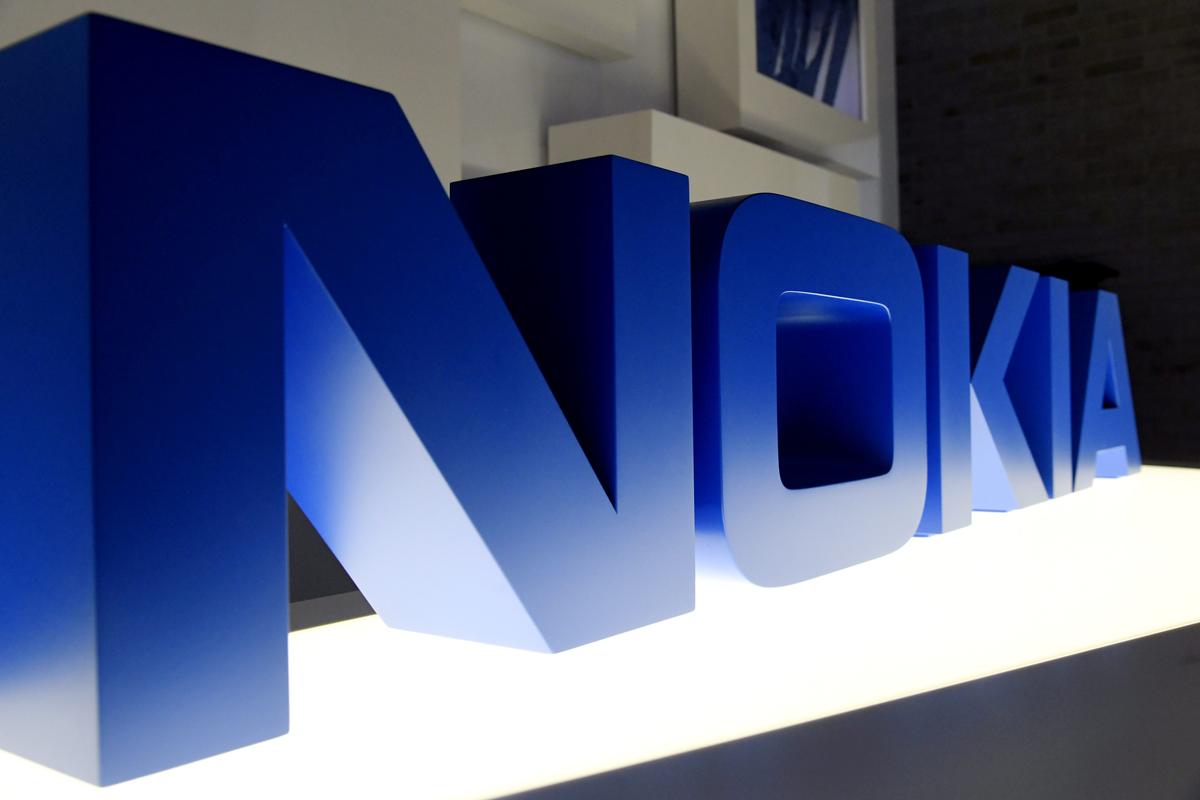HELSINKI/STOCKHOLM (Reuters) – Finnish telecom network equipment maker Nokia reported an unexpected rise in second-quarter underlying profit on Friday as it took on less low-margin business particularly in China, sending its shares up 13% in early trade.
Cutting less-profitable service business and not winning 5G radio deals in the cut-throat Chinese market helped Nokia, where new Chief Executive Pekka Lundmark takes over this weekend, upgrade its earnings outlook for 2020.
“We do not mind trading poor revenue which doesn’t have high quality margin for better revenue,” outgoing chief executive Rajeev Suri told Reuters.
Nokia said its underlying earnings in April through June rose to 0.06 euros per share from 0.05 euros a year ago, beating the 0.03 euros consensus in a Refinitiv poll.
Nokia, which had warned of a weak second quarter due to the virus, raised its forecast for 2020 underlying earnings per share to between 0.20 and 0.30 euros, from 0.18-0.28 euros.
Quarterly revenue fell 11% to 5.09 billion euros, below a consensus figure of 5.28 billion, Refinitiv Eikon data showed.
Most of the drop was due to the effects on the economy of COVID-19, but Suri also cited a sharp decline in China based on a “prudent approach” in that market, and proactive steps to reduce low-margin services business, though he didn’t say what the latter consisted of.
Nokia lowered its outlook for its market share in its main markets, measured by revenue, to underperform from its previous guidance of performing in line with rivals.
Suri’s successor Lundmark still faces key decisions on finding a balance between improving profitability and defending Nokia’s market share, which currently makes it number two behind China’s Huawei [HWT.UL] but ahead of Sweden’s Ericsson when measured by revenue.
“While the improvement in profitability from extremely low levels is clearly very encouraging, we are unsure on how much further Nokia can take such an improvement when sales are coming under significant pressure,” Liberum analyst Janardan Menon said.
Ericsson had reported a rise in 5G network sales and software revenue two weeks ago.
Suri steps down after more than a decade in charge of Nokia and Nokia Siemens Networks. The leadership change comes as turbulence prevails in European telecoms markets, with increasing pressure from some governments for operators to exclude or limit the use of 5G equipment from Huawei.
Source: Read Full Article
